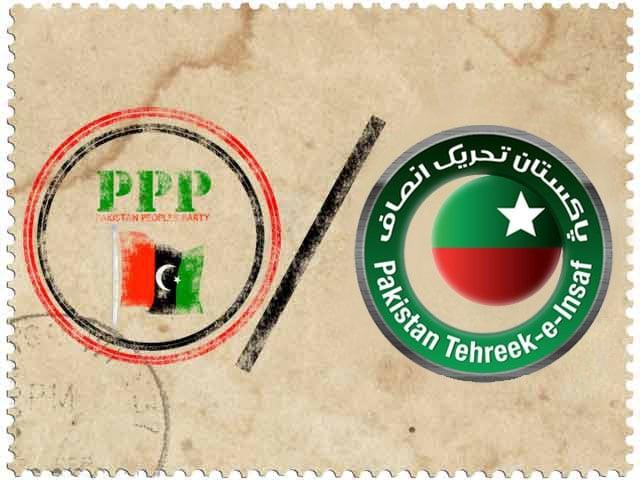ISLAMABAD:
The long-awaited breakthrough in the political deadlock may finally be within our reach as after months of acrimony and clashes, the PML-N and PTI-led federal government will meet face to face on Monday morning (today) in a meeting. a crucial attempt to bridge the differences that have fueled instability in the country for too long.
The announcement by both sides’ committees and their scheduled dialogue has generated cautious optimism across the country. Many hope that this long-awaited meeting will serve as a cornerstone for political and economic stability.
However, the burning question remains: Will the negotiating table bear the weight of the political rivals’ deep-rooted differences, or will these divisions prove insurmountable?
Amid a mix of skepticism and hope, political experts praised the move but stressed the need for immediate confidence-building measures. Both sides, they stress, must demonstrate a genuine commitment to stability and not stagnation.
They suggest actions such as toning down the heated rhetoric and ensuring tangible measures to lower the political temperature.
Husain Haqqani, former ambassador of Pakistan and currently an academic at the Hudson Institute in Washington DC and the Anwar Gargash Diplomatic Academy in Abu Dhabi, pointed to the fact that the PTI, which had refused to negotiate with the government for two years, now being ready to talk suggested a willingness to reach an agreement.
“That is a far cry from Imran Khan’s previous position that he can lead a revolution from his prison cell and could help reduce, if not end, the current wave of repression against his supporters,” the former envoy said.
Haqqani emphasized that Pakistan needs civilian parties to agree on the rules of the political game to break the cycle in which various parties alternately side with the military against each other.
He pointed out that for there to be a win-win deal, the PTI would have to accept the legitimacy of other parties instead of dismissing them as “swindlers and traitors”.
The ruling parties would have to accept the PTI’s concerns about state power deployed against the party and holding fair elections, he added.
“But,” he stressed, “the PTI would also have to reassure the all-powerful Pakistan army about an end to its threats of violence and its anti-military campaign on social media and the international lobby.”
Haqqani noted that the key issue was Imran Khan’s position as the sole decision-maker in the PTI, raising doubts over whether the party’s negotiating team would have the autonomy to negotiate a resolution to Pakistan’s current instability.
“If the talks lead to an agreement and stability, everyone will celebrate their outcome.”
Meanwhile, political experts such as Pakistan Institute of Legislative Development and Transparency (PILDAT) President Ahmed Bilal Mehboob and Professor Tahir Naeem Malik of NUML University have outlined steps the government and the PTI could take to achieve results. significant.
The PILDAT head considered that sitting at the table to start an unconditional dialogue was a positive step towards reducing political tensions.
“I think some confidence-building measures should immediately follow,” Mehboob said, noting that “such as stopping the use of uncivilized language, declaring complete disassociation of elements sitting abroad and criticizing military leaders with uncivilized language.” harsh and obscene.”
He added that the government should “sincerely consider the demands of the PTI and accommodate them wherever possible.”
However, he noted that announcing a civil disobedience movement would destroy the atmosphere of talks; Therefore, no such plan should be announced or rather mentioned. “Patience and tolerance are basic requirements for these types of conversations.”
Among other things, Mehboob pointed out that several PTI leaders speak on behalf of the party, suggesting that PTI founding president Imran Khan should authorize one or at most two people to speak. “Making everything public during conversations usually ruins conversations and should be controlled,” he suggested.
Mehboob, while reminding that Imran Khan had once “vetoed” the decisions taken by his committee in March-April 2023, said that this time he should agree with the people he nominated for the talks. “We should express good wishes for the talks and not expect too much in a short period of time,” he added.
Professor Malik noted that the talks came shortly after military courts convicted and sentenced several people involved in the May 9 attacks on civilian and military facilities. He suggested that Chief of Army Staff (COAS) Syed Asim Munir and President Asif Ali Zardari could condone these punishments, considering the changing tone of the PTI leadership.
“Both the army chief and the president have the power to condone sentences,” Professor Malik said, adding that if they use their powers to condone sentences as they do on Eid and other occasions, then it will be “a huge thing.”
Malik added that the Speaker of the National Assembly can also play his role and help grant reserved seats to the PTI as a gesture of goodwill.
He also suggested that the release of political prisoners other than those wanted or put on trial in the May 9 cases may also be considered to create a favorable environment for talks.
Talks about talks between the ruling PML-N and opposition PTI began after Khan constituted a committee to negotiate with the government. However, the opportunity soon became embroiled in a dispute when the leaders of both sides not only began berating each other but attached the talks to certain conditions.
Experts consider the start of formal talks to be a turning point and every effort should be made to calm the agitated political scene and bridge divisions rather than break them.




